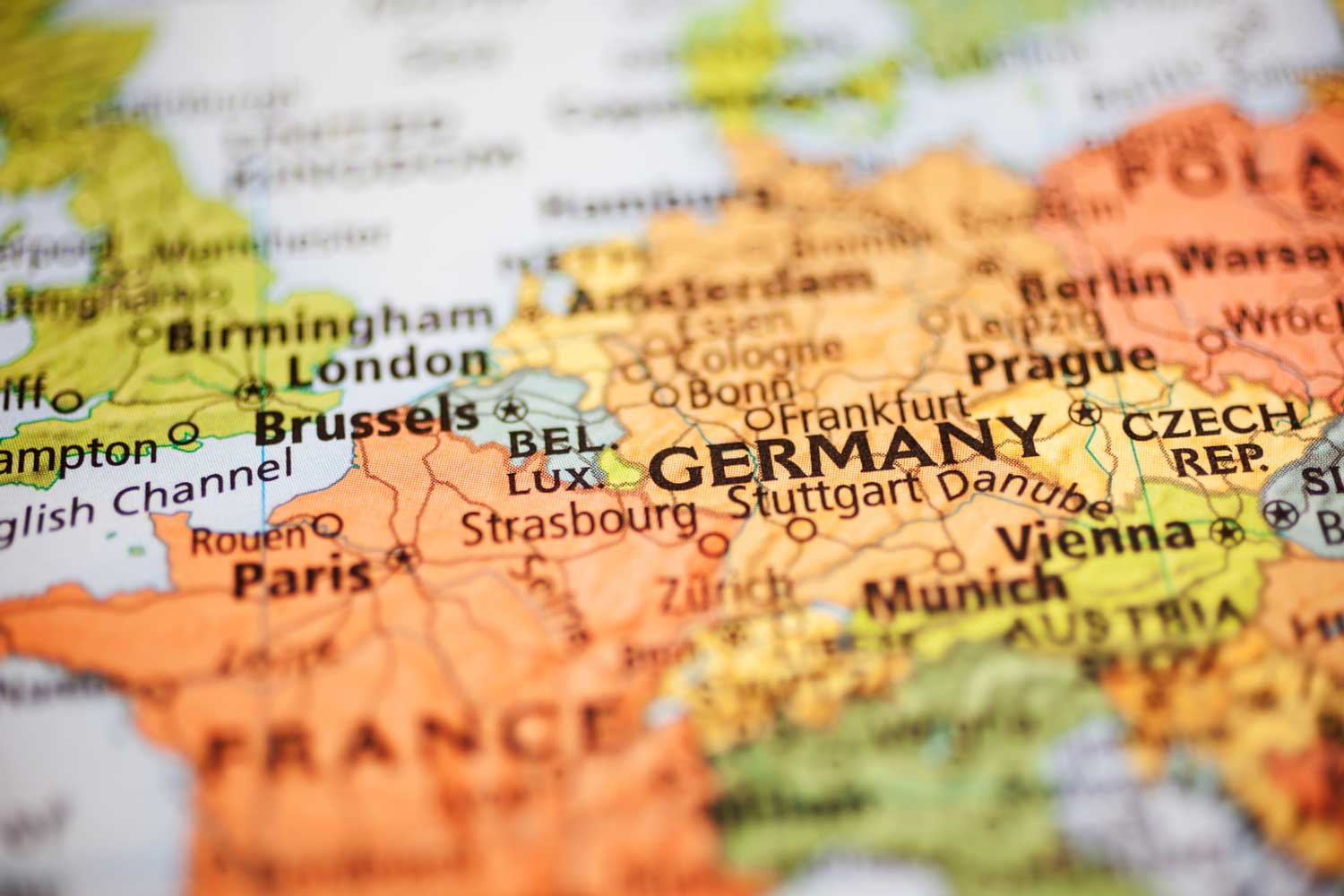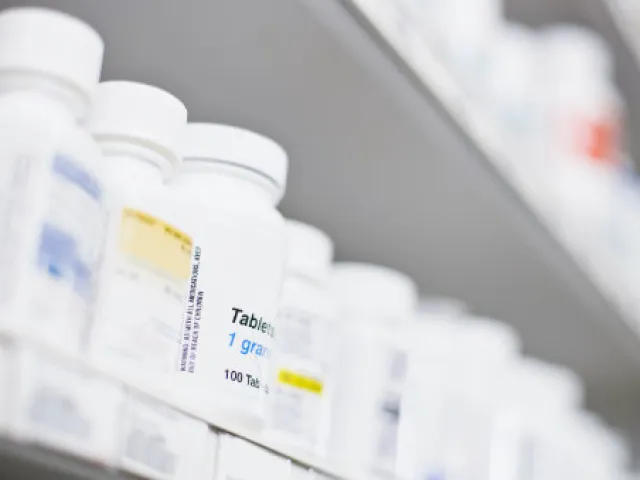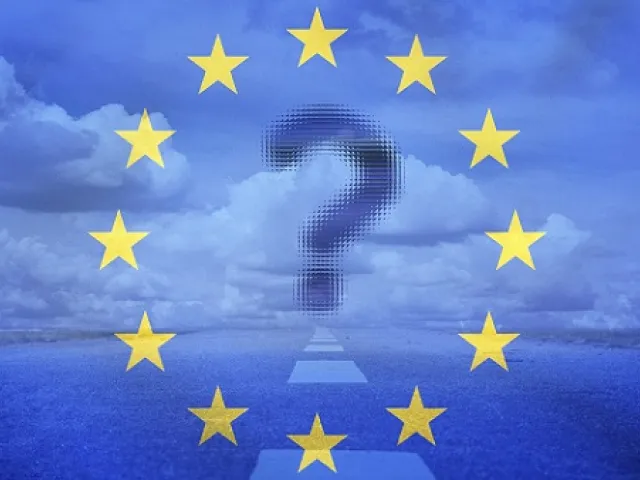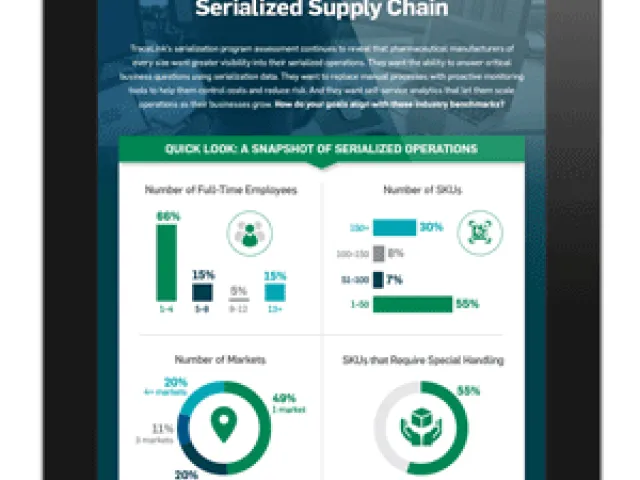Table of contents
Before the publication of the EU Falsified Medicines Directive (EU FMD) and the Delegated Acts, a few EU member states had already chosen to adopt traceability standards, and Germany was one of them. We recently spoke with two supply chain executives who worked behind the scenes at Germany’s ACS PharmaProtect, which operates the first national system in Europe,
Tell us about ACS PharmaProtect and who it represents.
ACS PharmaProtect operates the database of the pharmaceutical industry in the
The stakeholders of ACS are the three pharmaceutical manufacturer associations—BAH, BPI, and VfA—representing more than 90 percent of all German pharmaceutical companies.
Do you have to be a member of one of these associations to join ACS?
It’s not necessary to be a member to connect to the NMVO in Germany. If you’re not represented in these associations, you can join ACS as well. Indeed, every pharmaceutical company that has medicinal products in its portfolio having to bear the safety features has to join
Why was securPharm formed?
When
Once the law goes into effect in February 2019, how will verification work at a pharmacy in Germany?
It is an end-to-end verification system. If the pack is in the database, and the verification is successful, they can dispense the medicinal product to the patient. If not, they should investigate.
The Delegated Acts regulation asks for product master data. In Germany, this is a task of Informationsstelle für Arzneispezialitäten (IFA). How do companies and ACS work with IFA?
We check with IFA if a company is responsible for the products. The company gets the national reimbursement number (PZN) from IFA so that we get the master data from IFA for our system. After that, companies can upload their batch data in our database.
How do they connect to the securPharm system?
We provide access and you can test in our integration environment. Then you can upload batch data, including serial numbers for real products, in the production environment.
To prepare for compliance, there are literally tons of moving parts to upgrade and integrate. What are the consequences of not being ready in time?
There are still lots of companies that haven’t started to prepare yet. It's really a tough timeline until February 2019—less than 500 working days to implement—and
But what if you are prepared? Then, you're on track and you can gain additional market shares.
If a pharmaceutical company connects to securPharm and has multi-market products, how do they exchange information such as product statuses and transactional data?
We recommend that such a pharmaceutical company should upload the data via the European hub and the European hub will forward this data to the relevant NMVOs. For example, when you want to upload a multi-market pack for Germany and Austria, you send the data to the European hub. The hub sends the data to the databases of Germany and Austria. The serial number is only stored in the NMVO.
Who is required to contract with the European hub and national systems under EU FMD?
If you place prescription medicine in a market affected by the Delegated Acts regulation, you or your parent group must conclude a contract with EMVO for connection with the European hub. In addition, you need a contract with the operator of the national verification system in every country in which you place your products in the market.
For companies doing business in Germany, why participate now with the securPharm pilot?
Companies need experience that they only get when testing the systems. ACS needs their input so we can learn together. The focus on this pilot is to reduce technical errors and to provide companies an opportunity to make mistakes without any effect on their sales. If no one uses it now, we can't improve it.
What is the biggest roadblock right now in piloting?
The biggest challenge is handling serial numbers—the exchange from a central database to the pharmaceutical company or CMO. At first, when we started the pilot, we thought, “Oh, most errors will be in printing—printing quality will not be good.” But we saw in the last two years that the main errors are related to serial number management.
Are you finding different challenges for big versus smaller pharma companies?
All companies still make a lot of mistakes, so the size doesn't matter. We have a lot of big pharmaceutical companies who participate in our pilot, and they are also faced with other requirements, for example, in Turkey or in China. The error quotes of these companies are as much or higher as the error quotes of beginners.
What are some other common challenges you’re discovering?
Manufacturers need to have a look on the packs. Not only do you need to print the DataMatrix code, you must also print four elements in Germany—and five elements in some other countries—in human-readable format on the pack. A lot of companies have problems with the size of the pack, and they should change the packaging. That requires time, and it’s one of the biggest challenges in the coming years.
For example, if you are a generic company with a thousand different products—and you change the artwork of a thousand different products—it takes a while to do it. And you have to combine all that with the anti-tampering device.
What happens if a participant encounters an error during the pilot?
If you make an error, it has no consequence on the dispensing. If there is something wrong, if the serial number is unknown, the pack can be dispensed in a pharmacy. That will change in 2019, so it's best to start early.
How can companies address data exchange issues and fragmentation between partners?
If you have 10
What data is stored by securPharm ? Is it anonymized?
Data stored in the system includes
How many companies are participating so far in the pilot?
About 100 pharmaceutical companies are actually on-boarded: one-fourth of the pharmaceutical industry in Germany. We hope to contract another 100 companies in
We have 400 pharmacies and 19 wholesalers participating in the pilot. They generate traffic to the system, and we get messages and queries from them, such as if the packs are dispensable, and if it's possible to verify them.
How has the securPharm national system worked with TraceLink to meet EU FMD requirements?
TraceLink is one of the first service providers with a connection to the European hub. Now with more than three pharmaceutical companies connected, it has successfully uploaded data via the European hub to our system.
That's important for Europe—testing together with the hub. We have a lot of pharmaceutical companies that are customers of TraceLink, and the response from those companies is that they are quite satisfied.


Tobias Beer is the former Head of Customer Recruitment & Relationship Management at ACS, and has just taken on a new role at the European Medicines Verification Organization (EMVO). Before joining ACS in 2014, he supported serialization implementation at Boehringer Ingelheim, the second-largest pharmaceutical manufacturer in Germany.
Maria Mehnert runs the Customer Recruitment and Relationship Management program at ACS PharmaProtect. Her responsibilities include contracting and onboarding ACS customers: legal entities that place medicinal products in the German market. She has been with ACS since May 2016.









